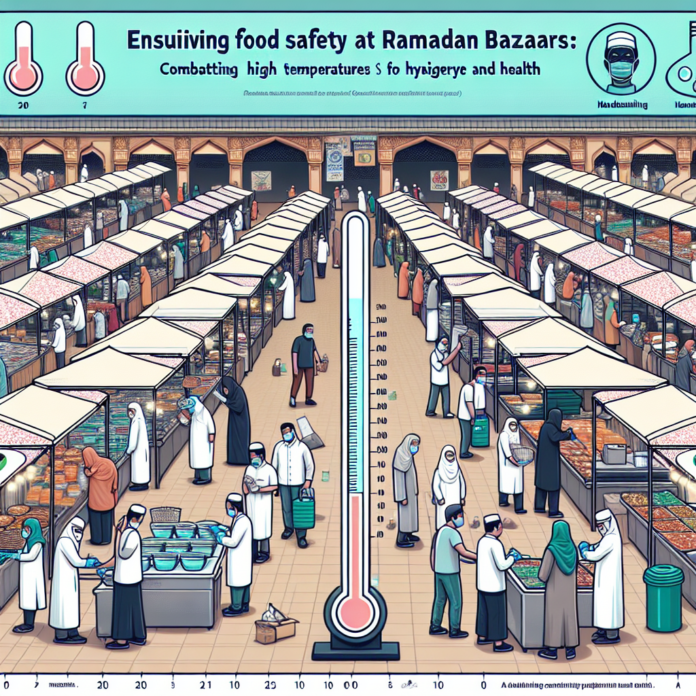Ensuring Food Safety at Ramadan Bazaars Amidst High Temperatures
“`html
Ramadan Bazaar Food Safety: Battling High Temperatures for Hygiene and Health
As the holy month of Ramadan unfolds, the vibrant atmosphere of bazaars brings a delightful array of culinary offerings. However, with the rising temperatures, ensuring food safety becomes an essential priority for vendors and consumers alike. The combination of heat and food can create a perfect storm for foodborne illnesses if proper hygiene practices are not adhered to.
Understanding the Risks
High temperatures during Ramadan can lead to rapid bacterial growth in food, especially in perishable items like meats, dairy products, and cooked dishes. The World Health Organization emphasizes that food should not be left out at temperatures above 4°C (39°F) for more than two hours. Awareness of these risks is crucial for both food sellers and patrons.
Best Practices for Vendors
To combat the challenges posed by rising temperatures, vendors should implement several key practices:
- Temperature Control: Utilizing coolers and ice packs to keep perishable items at safe temperatures.
- Regular Cleaning: Ensuring that food preparation and serving areas are regularly cleaned and sanitized.
- Hand Hygiene: Encouraging staff to frequently wash their hands and use gloves while handling food.
- Food Coverage: Keeping food items covered to protect them from contaminants and insects.
Consumer Awareness
Consumers also play a vital role in ensuring food safety during Ramadan bazaars. Here are some tips to keep in mind:
- Observe Hygiene: Pay attention to the cleanliness of the vendor’s stall and food handling practices.
- Choose Wisely: Opt for freshly prepared items rather than those that have been sitting out for extended periods.
- Storage Practices: If purchasing food to take home, ensure it is stored appropriately to maintain its safety.
The Importance of Education
Education and awareness campaigns are essential in promoting food safety during Ramadan. Local health authorities can organize workshops for vendors to educate them about proper food handling practices. Additionally, distributing informational materials to consumers can help increase their understanding of food safety measures.
Conclusion
As Ramadan bazaars continue to flourish, prioritizing food safety is imperative for the health and well-being of everyone involved. By adhering to hygiene practices and staying informed, both vendors and consumers can enjoy the festive spirit of Ramadan while minimizing the risk of foodborne illnesses. The collaboration of vendors, consumers, and health authorities is key to creating a safe and enjoyable dining experience during this cherished month.
“`


